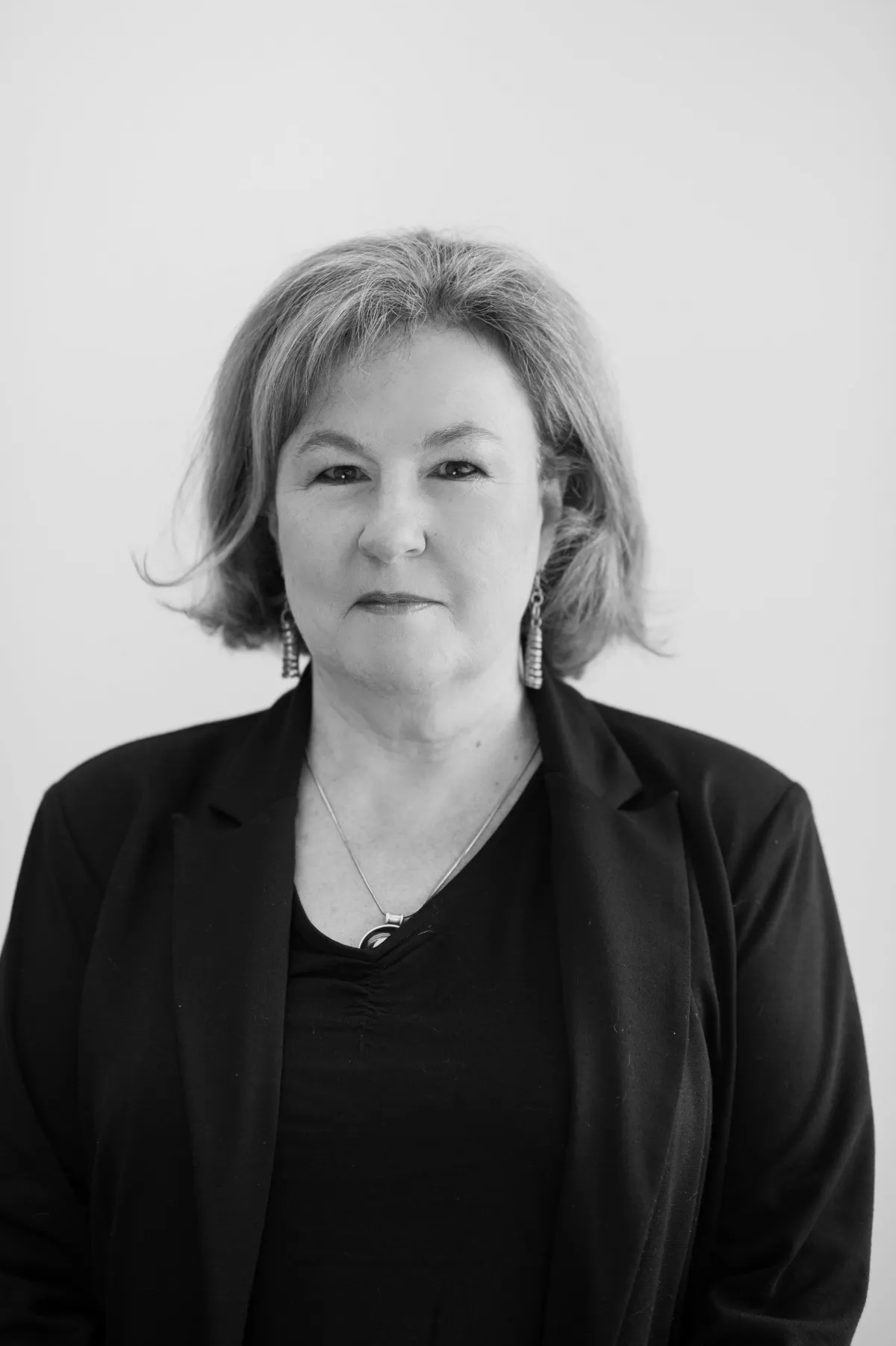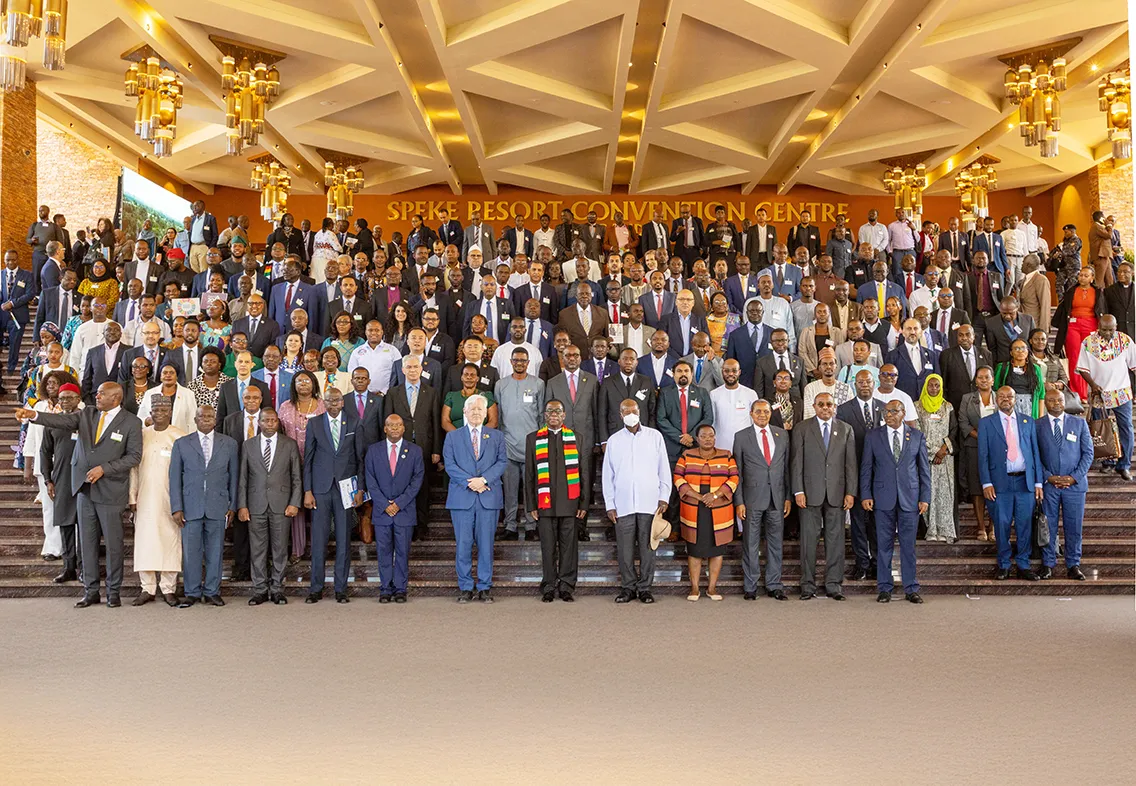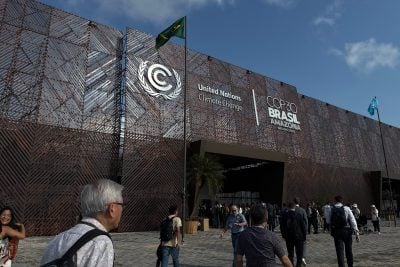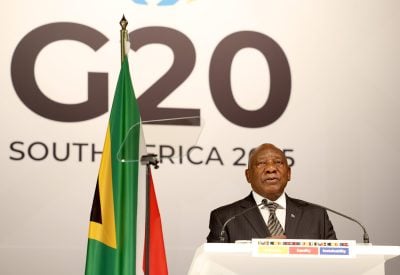This article was produced with the support of United Nations Economic Commission for Africa (ECA)
The 11th African Regional Forum for Sustainable Development came to an end with calls for African countries to respond to evolving global circumstances by focusing on local value addition and intra-continental trade. Delivering his remarks at the closing ceremony, Leonard Zulu, UN Resident Coordinator, Uganda, praised President Yoweri Museveni for highlighting the urgent need for African countries to transform the continent’s approach to development, recalling that “his message was clear: we must cease exporting our jobs and raw materials.
“He underlined that instead we must invest in our systems through advanced transportation, affordable greener energy, transformative education and robust financial systems and add intentional value addition to our abundant resources.”
‘Durable peace requires sustainable development’
Noting the interconnectedness of the challenges the continent faces, Zulu called for collective and integrated responses. “Durable peace requires sustainable development. Sustainable development requires sustainable financing. Sustainable financing requires control over economic and financial flows and this control requires robust state institutions,” he argued.
Zulu further called for investment in science, technology and innovation, as well as a “transformative mindset that prevents the shipping away of jobs through the exporting of raw materials to intentional value addition on them”.
For the continent to grow inclusively, Zulu said, gender equality, youth empowerment and social protection must be prioritised. Partnerships must also be strengthened across government, civil society, the private sector and other stakeholders.
Claver Gatete, executive secretary of the UN Economic Commission for Africa (ECA), thanked delegates for their hard work and for putting together the Kampala Declaration. “This is not an ECA document. This is not a UN document. It’s your document. Whatever is in there, it is your own input and at the end of the day, we all own it together,” he said.
Reflecting on the evolution of the global financial system, Gatete noted that the cracks in the system had become clear since 2002.
“We realised that this financial system that was put in place after 1994 is not working for Africa. The Washington Consensus can no longer work for us.” The continent, he said, has since been battered by a series of external shocks.
Now, with the impact of climate change being felt, the continent is under even more pressure. “Africa’s debt now exceeds $1 trillion, with annual interest payments surpassing $100bn. The situation is not sustainable. We are trying various innovative financing models but they are not enough.”
Gatete pointed out that the efforts to restructure the continent’s debt have been hampered by the complexity of the current credit arrangements. While the bulk of debt was previously owed to the Paris Club and thus lent itself to easy decision making, there are many more lenders now, including private ones, to consider.
“Bringing everyone together under the current geopolitical climate is difficult. That’s why the G20’s common framework is not working,” he explained. The fact that only two African countries have ever achieved investment-grade status, Gatete stressed, is “a signal that we need to do things differently”.
Presidents urge collaboration to build Africa
President Yoweri Museveni, host of the ARFSD 11, stressed the need for Africa to stop exporting raw materials, saying: “When you export raw materials and somebody goes and makes more money out of it and creates jobs for their children, it means you are donating money and donating jobs.
“That is what Africans have been doing. I’ve banned the export of unprocessed minerals. No unprocessed mineral leaves Uganda now. I told our people that if we can’t process the minerals, they must stay in the ground. Our grandchildren will process them.”
The forum serves as a critical platform for dialogue and action, based on the theme, “Driving job creation and economic growth through sustainable, inclusive, science-and evidence-based solutions for the 2030 Agenda and Agenda 2063.”
President Museveni said Uganda’s agricultural sector employs 3.6m people, manufacturing and industry 1.4m people, and the services sector 5m. The ICT sector is currently employing 46,000 people. “We are just beginning, but you can see jobs can be created,” he said.
Uganda’s internal market is not big enough, he said. “We produce 5.3bn litres of milk, but the internal market is only 800m litres. If we didn’t have the East African Community, the dairy sector in Uganda would have collapsed. So it must be emphasised that regional integration provides guaranteed markets for our businesses.
Emmerson Mnangagwa, President of Zimbabwe, also highlighted the need for collaboration.
“We cannot have individual countries championing as individual countries. There must be a connectedness of our efforts. We need to share, discuss and interrogate what means we have to achieve our goals.”
He said that the Southern African Development Community recognises the importance of its abundant natural resources, which offer a unique comparative advantage.
“Africa’s transformation will not occur by chance. That responsibility lies with us, the leaders, and the people of this great continent. We must take charge of our development and our destiny.
“Let us, therefore, commit ourselves to the guiding objectives of inclusive development.”
“With a youthful population and abundant resources, the potential for economic transformation in Africa is immense.”
First Deputy Prime Minister of Equatorial Guinea, Gaudencio Mohaba Mesu, representing the country’s President, urged countries to use their natural advantages to build economies and enhance regional development.
We must tell a new story of Africa
Africa stands at a pivotal moment, not only of challenge but of immense opportunity, said Amina Mohammed, Deputy Secretary General of the United Nations. “With just five years remaining to achieve the 2030 Agenda and the second decade of Agenda 2063 now under way, we must confront the hard truths and match them with bold and courageous solutions.
The annual financing gap to achieve the UN Sustainable Development Goals (SDGs) stands at a staggering $200bn and foreign direct investment to Africa declined in 2024 by 1.9%, falling to $53bn.
Over 60% of countries are either in or at a higher risk of debt distress. In 2023 five African countries spent more on external debt servicing than on health and education combined. “This is unacceptable.”
The goals of Abuja Declaration remain a distant ambition. Half of African countries spend less than 6% of national budgets on health and the high cost of digital access, especially in rural areas, continues to exclude millions of people.
“But these figures do not define us. Africa is not standing still. We are standing up. Despite global headwinds, our continent accounted for nine of the world’s fastest-growing economies in 2024. Progress against HIV and AIDS is encouraging, with nearly two dozen countries recording significant declines in new infections.
“Women across the continent are leading change. Today 26% of parliamentary seats in Africa are held by women, up from 19% in 2015. But this does mask some of the inequalities in different countries.
“Now we must turn words into actions. Across these efforts, Africa’s leadership and innovation continues to inspire. From local solutions to global negotiations, African countries are driving forward a bold vision for inclusive sustainable development.
“The stronger connections between regional economic commissions and resident coordinators anchored by the Secretary General’s reforms have allowed new opportunities to align policy and operations and deliver integrated support across Africa on Africa’s priorities.
“This has given me great confidence that we can accelerate action on the SDGs and Agenda 2063. This year brings major global milestones – the Fourth International Conference on Financing for Development, the second World Social Summit, the UN Food Systems Summit Stocktake in Ethiopia and COP30 in Brazil. Africa’s voice must shape every one of these global milestones.
“Let’s seize this forum and the Kampala Declaration as a catalyst for regional leadership and global solidarity.
“Let’s scale what works, deepen our partnerships and create the enabling conditions for investment and innovation. Let’s tell a new story of African solutions driven by African leadership, especially our young people, powered by African people and anchored in African values.
“Let’s turn ambition into action in solidarity with the African Union in service of the Africa we want.”
Sobering data
With just five years to go to 2030, the target for meeting the SDG goals, the data is sobering.
Out of 144 measurable SDG targets, only 10 are on track, while 106 are progressing too slowly, with 28 regressing, said Claver Gatete of the ECA. “We simply cannot afford to continue at this pace. The forum was convened under the theme: Driving job creation and economic growth through sustainable, inclusive, science and evidence-based solutions for the 2030 Agenda and AU Agenda 2063.
“To reverse this trend, we must move beyond diagnosing our challenges to implementing bold and actionable solutions.
“As we speak, structural vulnerabilities, including the lingering effects of Covid-19, climate shocks, conflicts and geopolitical tensions, as well as mounting debt burdens, continue to stifle Africa’s progress.
“Our average GDP growth, since 2019 has hovered around 3%, which is far below the 7% needed to achieve just SDG 8 on work and economic growth.
“It is clear now that aid can no longer be considered a reliable or sustainable solution, and traditional financing models are increasingly misaligned with Africa’s development aspirations.”
Gatete outlined the many challenges of meeting the five SDGs under the spotlight at the event – Good Health and Wellbeing (SDG 3), Gender Equality (SDG 5), Decent Work and Economic Growth (SDG 8), Life Below Water (SDG 14) and Partnerships for the Goals (SDG 17).
To reverse the trend on SDGs, “we must move beyond diagnosing our challenges to implementing bold and actionable solutions.”
He proposed four strategic pillars to mobilise the resources to achieve the SDGs and AU Agenda 2063.
The first is to scale up domestic resource mobilisation. “If we restrain illicit financial flows, estimated at $89bn annually, alongside harnessing sovereign wealth funds, we can secure billions for our developmental needs.”
Remittance-backed bonds could increase the $53bn FDI that flowed to Africa in 2023. “It is time derisk our economies, elevate capital market development and expand access to affordable finance, he said.
He said the African free trade area needs to be properly harnessed to advance Africa’s agenda and more could be done in the digital space.
“Investing in digital connectivity, artificial intelligence, blockchain solutions and evidence-based policymaking will drive efficiencies in trade, governance and service delivery.
“The clock is ticking. The next five years must be marked by bold leadership, decisive policies and strengthened partnerships that will place Africa on a trajectory of sustainable prosperity.”

 Sign in with Google
Sign in with Google 



